Three sawmillers report that unless there is a vast improvement in the issuing of felling licences, they may have to shut down operations next year due a shortfall in logs.
Patrick Murray of the Murray Timber Group said that their mills in Ballygar, Co Galway and Ballon, Co Carlow, are experiencing “major slowdown” in felling licence approvals.
“While we have sufficient logs until yearend, we will have major timber supply problems next year if the current situation continues,” he maintained.
Jim McNamara, Laois Sawmill, said that the slowdown of approvals is“unacceptable and is affecting both Coillte and private growers – mainly farmers – which has major implications for all timber processors, both sawmills and board mills”.
Gerry Dolan maintained that Glennon Brothers were already seeing the effects of delays in felling licence approvals.
Mills will be forced to cut back production leading to job losses in processing, harvesting and haulage
“Unless there is a dramatic improvement in issuing licences to Coillte and private growers as well as road grant approvals for private forest owners, mills will be forced to cut back production leading to job losses in processing, harvesting and haulage as early as the second quarter next year,” he said.
The sawmills contacted said that the situation has been building up over the past two years due to “widespread objections to licences application especially in relation to appropriate assessments (AAs).
An AA is an assessment of the potential adverse effects of projects such as planting, felling and roading on Special Areas of Conservation (SACs) and Special Protection Areas (SPAs), which are protected by national and European law.
Andrew Doyle, Minister of State at DAFM, responded to “the temporary delays in the issuing of forestry licences” last Friday.
There have been delays in the issuing of licences due to necessary changes in the procedures surrounding AAs
“DAFM has overall responsibility for approving applications for tree-felling, afforestation and the construction of forest roads,” he said.
“There have been delays in the issuing of licences due to necessary changes in the procedures surrounding AAs, a requirement as part of the approvals process.”
“While licences continue to issue every week, this has not been at the rate that we would like to see,” he said.
“This has caused some disappointment to forest owners, many of whom I have met recently. I want to take this opportunity to provide an update on the ongoing work to reform the processes to ensure that this temporary disruption is resolved as quickly as possible.
Each application must undergo detailed scrutiny regarding its environmental suitability
"I also want to reassure landowners that every effort is being made to improve on the delivery of licences to bring them back into line with the expected timelines for delivery.”
In approving licences, “the Department must ensure that all projects are compatible with environmental sustainability and in compliance with EU and Irish law,” he explained.
“Each application must undergo detailed scrutiny regarding its environmental suitability, including site inspections, statutory referrals, public consultation, and the application of procedures around AA and environmental impact assessment (EIA),” he said.
“Recent European Court of Justice and Irish law rulings relating to the protection of natura sites [SACs and SPAs] have meant changes to this process, specifically in relation to the AA procedures. More transparent and robust procedures are being introduced which will demonstrate the process by which the Department arrives at a final decision regarding whether or not a project will adversely affect the integrity of a natura site, either individually or in combination with other plans and projects.”
We have a responsibility to ensure that all forestry applications are scrutinised
The Minister added that “while the introduction of these new procedures involves some regrettable disruption in the short-term, we have no option but to reform the licensing process”.
He stated: “We have a responsibility to ensure that all forestry applications are scrutinised and held to the highest possible environmental standards. I believe that in the long run these changes will enhance forestry’s reputation for environmental sustainability and will make for a more responsive licensing system.
Introducing new systems to address AAs includes the recruitment of additional ecological expertise and changes in procedures for the Department’s forestry inspectorate a DAFM spokesperson maintained.
“Last week, the Department advertised for additional ecologists and has engaged external ecological support, which will be supplemented in due course,”he claimed. “DAFM inspectors have already undergone training and will receive on-going support and training in delivering the new procedures. A categorisation of files affected by these requirements is also underway in order to best assess further action needed and by whom.”
Donal Whelan of the Irish Timber Growers Association called for an industry-DAFM partnership in addressing the issue.
“Over the next five years, the volume of timber to come from private sector forests alone is to triple while ambitious planting targets are required to meet climate change targets,” he said. “Both activities require DAFM licences or approvals so must undergo AA screening, which, given the legal requirement for assessment means that the Department is in the best position to address environmental impact assessments as proposed. Where undertaken promptly and efficiently such a strategy has the potential in the medium and longer term to speed up the licence application process and ensure a viable forestry sector.”
Up until last May, DAFM provided felling licence data for both private and Coillte.
While representatives of forest owners, sawmills and other groups welcomed the Minister’s acknowledgment of the problem and plans to address the issue, they called for greater urgency and also transparency in recording felling licence approvals for Coillte and private growers.
Up until last May, DAFM provided felling licence data for both private and Coillte. Despite protests from the sector, especially Forest Industries Ireland (FII), DAFM has steadfastly refused to provide a breakdown of data which means that private growers, forestry companies, sawmills, nurseries and other relevant stakeholders have no idea how many felling licences have been approved, refused or delayed.
Irish Wood Producers in John F Kennedy Park
The Irish Wood Producers is a not-for-profit company managed by private forest owners to support almost 800 members with the sustainable management and development of their forestry.
IWP held a field day recently in the John F Kennedy Arboretum, Co Wexford, which explored the tree trials established in the arboretum in the 1960s.
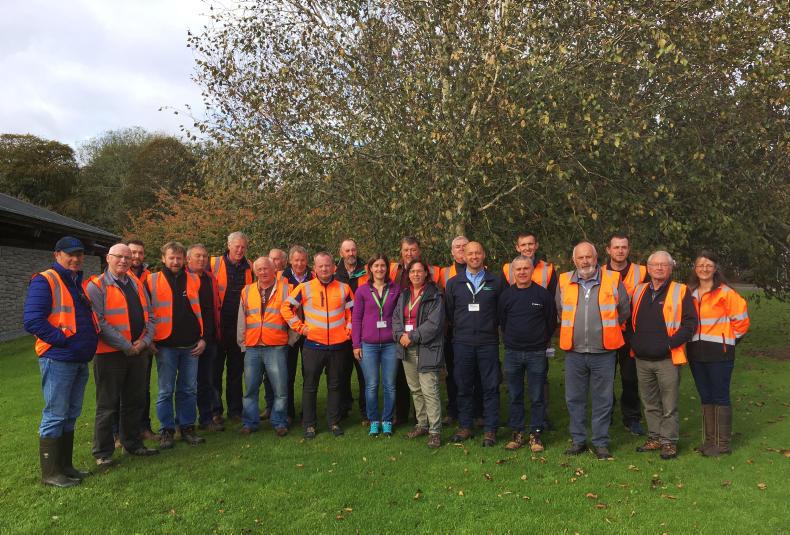
Supported by the Forest Service, the event included presentations and demonstrations by Kevin Naughton, JFK Arboretum, John Casey, Teagasc, and Andy Walsh, Husqvarna. Other organisations and companies provided advice relevant to private forest owners. Pictured: David Connors, IWP; Donal Magner, Wood Marketing Federation; Conor Dowling, IWP; John Kavanagh, None So Hardy Nurseries; Pat Doyle, Doyle Harvesting; Nicholas Sweetman, IWP; Paddy Gaule, IWP; William Auld, IWP; Liam O’Byrne, IWP; Michael Somers, Teagasc; Tom Hickey, IWP; Niamh Hennessy, Forestry Division (FD); Anthony Browne, IWP chair; Sonja Maurus, FD; Tom Kent, Waterford IT; John Casey, Teagasc, Kevin Naughton, JFK Arboretum; Aodán Kealey, Murray Timber Group, Pat Delaney, IWP; Gary Neville, Roland Forestry, Edmond O’Byrne, IWP; and Alex Kelly, IWP manager.
Three sawmillers report that unless there is a vast improvement in the issuing of felling licences, they may have to shut down operations next year due a shortfall in logs.
Patrick Murray of the Murray Timber Group said that their mills in Ballygar, Co Galway and Ballon, Co Carlow, are experiencing “major slowdown” in felling licence approvals.
“While we have sufficient logs until yearend, we will have major timber supply problems next year if the current situation continues,” he maintained.
Jim McNamara, Laois Sawmill, said that the slowdown of approvals is“unacceptable and is affecting both Coillte and private growers – mainly farmers – which has major implications for all timber processors, both sawmills and board mills”.
Gerry Dolan maintained that Glennon Brothers were already seeing the effects of delays in felling licence approvals.
Mills will be forced to cut back production leading to job losses in processing, harvesting and haulage
“Unless there is a dramatic improvement in issuing licences to Coillte and private growers as well as road grant approvals for private forest owners, mills will be forced to cut back production leading to job losses in processing, harvesting and haulage as early as the second quarter next year,” he said.
The sawmills contacted said that the situation has been building up over the past two years due to “widespread objections to licences application especially in relation to appropriate assessments (AAs).
An AA is an assessment of the potential adverse effects of projects such as planting, felling and roading on Special Areas of Conservation (SACs) and Special Protection Areas (SPAs), which are protected by national and European law.
Andrew Doyle, Minister of State at DAFM, responded to “the temporary delays in the issuing of forestry licences” last Friday.
There have been delays in the issuing of licences due to necessary changes in the procedures surrounding AAs
“DAFM has overall responsibility for approving applications for tree-felling, afforestation and the construction of forest roads,” he said.
“There have been delays in the issuing of licences due to necessary changes in the procedures surrounding AAs, a requirement as part of the approvals process.”
“While licences continue to issue every week, this has not been at the rate that we would like to see,” he said.
“This has caused some disappointment to forest owners, many of whom I have met recently. I want to take this opportunity to provide an update on the ongoing work to reform the processes to ensure that this temporary disruption is resolved as quickly as possible.
Each application must undergo detailed scrutiny regarding its environmental suitability
"I also want to reassure landowners that every effort is being made to improve on the delivery of licences to bring them back into line with the expected timelines for delivery.”
In approving licences, “the Department must ensure that all projects are compatible with environmental sustainability and in compliance with EU and Irish law,” he explained.
“Each application must undergo detailed scrutiny regarding its environmental suitability, including site inspections, statutory referrals, public consultation, and the application of procedures around AA and environmental impact assessment (EIA),” he said.
“Recent European Court of Justice and Irish law rulings relating to the protection of natura sites [SACs and SPAs] have meant changes to this process, specifically in relation to the AA procedures. More transparent and robust procedures are being introduced which will demonstrate the process by which the Department arrives at a final decision regarding whether or not a project will adversely affect the integrity of a natura site, either individually or in combination with other plans and projects.”
We have a responsibility to ensure that all forestry applications are scrutinised
The Minister added that “while the introduction of these new procedures involves some regrettable disruption in the short-term, we have no option but to reform the licensing process”.
He stated: “We have a responsibility to ensure that all forestry applications are scrutinised and held to the highest possible environmental standards. I believe that in the long run these changes will enhance forestry’s reputation for environmental sustainability and will make for a more responsive licensing system.
Introducing new systems to address AAs includes the recruitment of additional ecological expertise and changes in procedures for the Department’s forestry inspectorate a DAFM spokesperson maintained.
“Last week, the Department advertised for additional ecologists and has engaged external ecological support, which will be supplemented in due course,”he claimed. “DAFM inspectors have already undergone training and will receive on-going support and training in delivering the new procedures. A categorisation of files affected by these requirements is also underway in order to best assess further action needed and by whom.”
Donal Whelan of the Irish Timber Growers Association called for an industry-DAFM partnership in addressing the issue.
“Over the next five years, the volume of timber to come from private sector forests alone is to triple while ambitious planting targets are required to meet climate change targets,” he said. “Both activities require DAFM licences or approvals so must undergo AA screening, which, given the legal requirement for assessment means that the Department is in the best position to address environmental impact assessments as proposed. Where undertaken promptly and efficiently such a strategy has the potential in the medium and longer term to speed up the licence application process and ensure a viable forestry sector.”
Up until last May, DAFM provided felling licence data for both private and Coillte.
While representatives of forest owners, sawmills and other groups welcomed the Minister’s acknowledgment of the problem and plans to address the issue, they called for greater urgency and also transparency in recording felling licence approvals for Coillte and private growers.
Up until last May, DAFM provided felling licence data for both private and Coillte. Despite protests from the sector, especially Forest Industries Ireland (FII), DAFM has steadfastly refused to provide a breakdown of data which means that private growers, forestry companies, sawmills, nurseries and other relevant stakeholders have no idea how many felling licences have been approved, refused or delayed.
Irish Wood Producers in John F Kennedy Park
The Irish Wood Producers is a not-for-profit company managed by private forest owners to support almost 800 members with the sustainable management and development of their forestry.
IWP held a field day recently in the John F Kennedy Arboretum, Co Wexford, which explored the tree trials established in the arboretum in the 1960s.

Supported by the Forest Service, the event included presentations and demonstrations by Kevin Naughton, JFK Arboretum, John Casey, Teagasc, and Andy Walsh, Husqvarna. Other organisations and companies provided advice relevant to private forest owners. Pictured: David Connors, IWP; Donal Magner, Wood Marketing Federation; Conor Dowling, IWP; John Kavanagh, None So Hardy Nurseries; Pat Doyle, Doyle Harvesting; Nicholas Sweetman, IWP; Paddy Gaule, IWP; William Auld, IWP; Liam O’Byrne, IWP; Michael Somers, Teagasc; Tom Hickey, IWP; Niamh Hennessy, Forestry Division (FD); Anthony Browne, IWP chair; Sonja Maurus, FD; Tom Kent, Waterford IT; John Casey, Teagasc, Kevin Naughton, JFK Arboretum; Aodán Kealey, Murray Timber Group, Pat Delaney, IWP; Gary Neville, Roland Forestry, Edmond O’Byrne, IWP; and Alex Kelly, IWP manager.





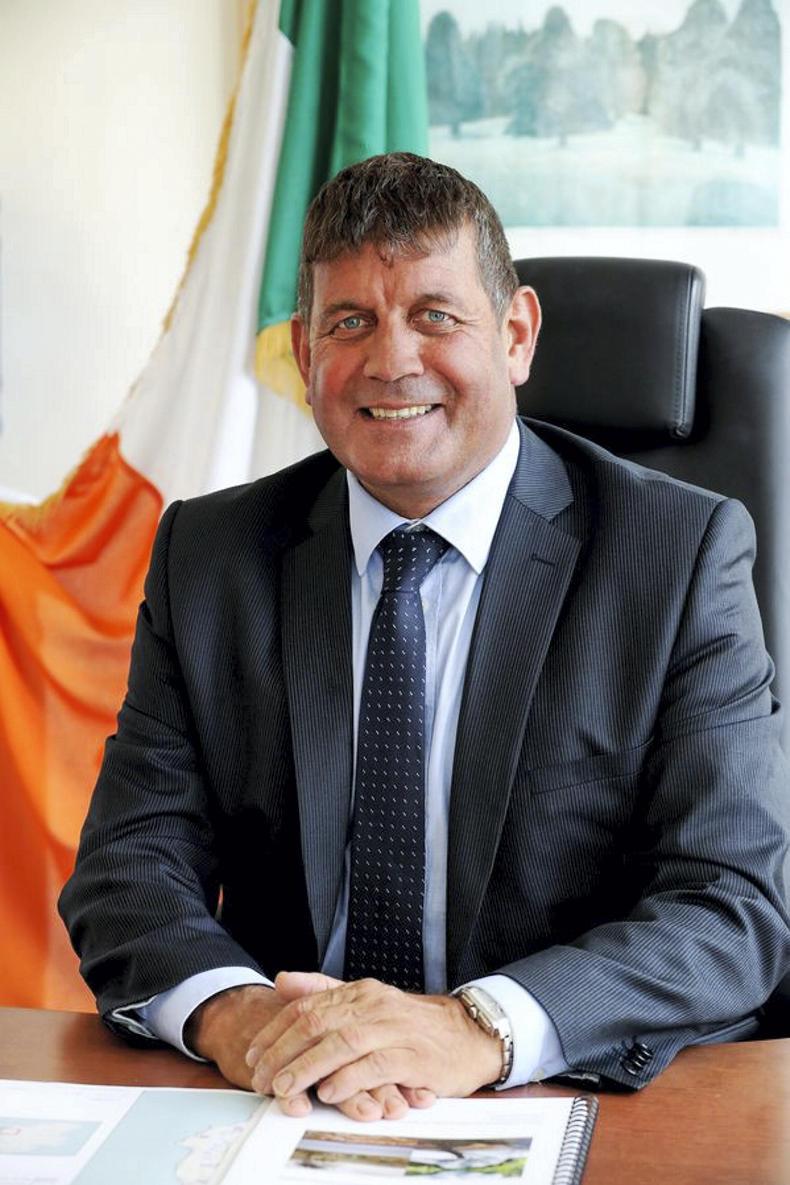
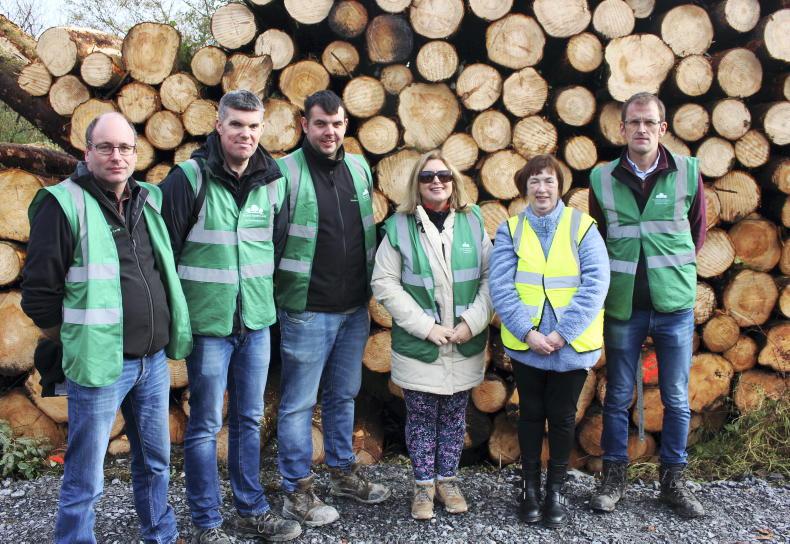

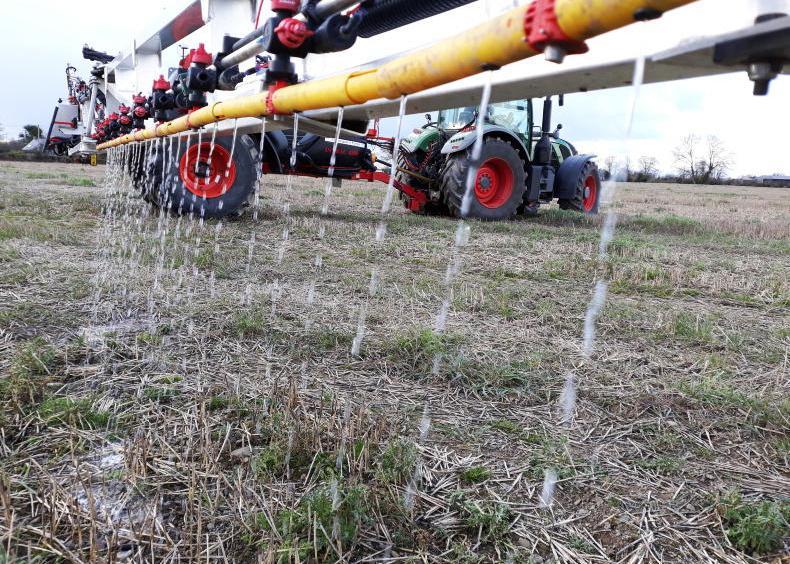
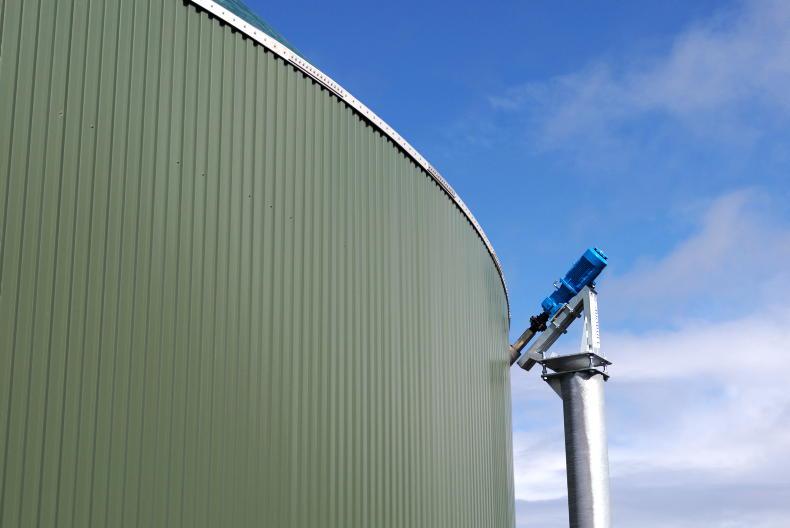
SHARING OPTIONS